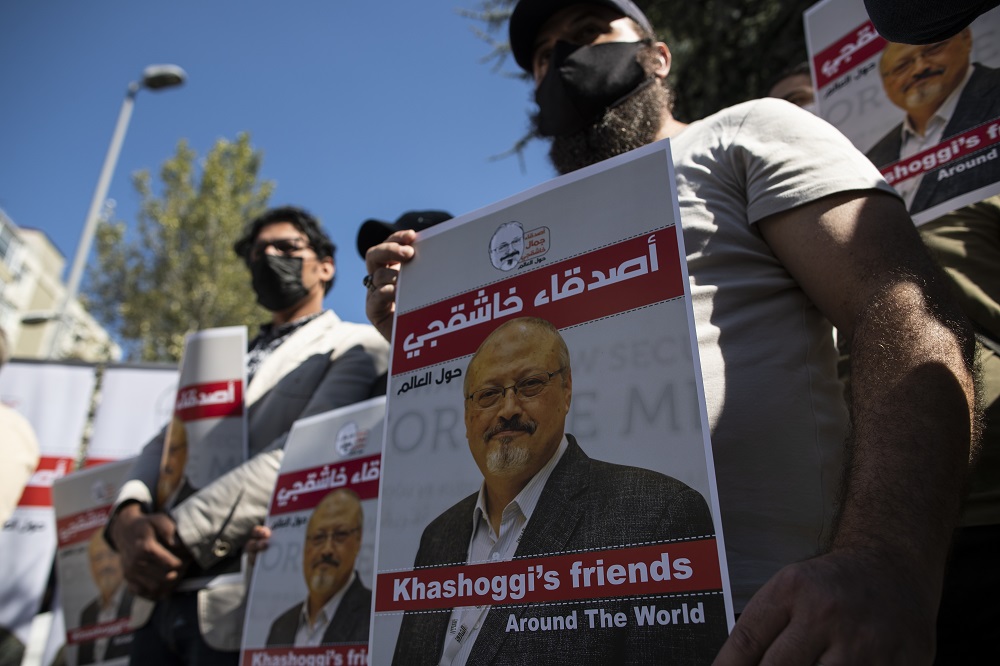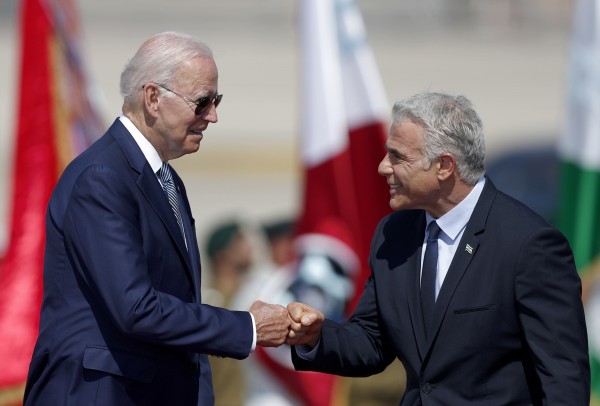October 2 marks the third anniversary of the 2018 murder of Washington Post columnist Jamal Khashoggi, a heinous act for which justice is still denied. The IPI global network strongly condemns the continued impunity in the case and calls on the international community to hold Saudi Arabia accountable for the murder.
On October 2, 2018, Khashoggi, a Washington Post columnist and well-known critic of Saudi Crown Prince Mohammed bin Salman, disappeared after entering the Saudi consulate in Istanbul, Turkey to collect documents ahead of his planned marriage. His Turkish fiancée, Hatice Cengiz, waited outside of the building, but Khashoggi never returned. Instead, he was murdered and his body apparently dismembered inside the consulate by a hit team sent from Riyadh. No remains have been found.
3 years ago tomorrow, Jamal Khashoggi was murdered in the Saudi consulate in Istanbul.
Still no justice for this heinous act. Saudi Arabia and MBS have suffered no meaningful consequences.
But we haven’t forgotten. The IPI network demands justice.https://t.co/noVB7x5vdK
— IPI-The Global Network for Independent Journalism (@globalfreemedia) October 1, 2021
“It has now been three years since the abhorrent killing of Jamal Khashoggi at the behest of Saudi Arabia”, IPI Deputy Director Scott Griffen said. “There’s a lot of talk, and a lot of promises, from the international community about ending impunity for crimes against journalists. And yet here we have the Saudi regime – a long-time ally of Western countries – which has suffered no meaningful consequences for the brazen elimination of a critical journalist. The IPI global network strongly condemns the continued impunity in this case and we continue to demand full accountability for this atrocious act.”
In February this year, U.S. intelligence officials published a previously classified report stating that Bin Salman most likely approved the operation to “capture or kill” Khashoggi. The report noted that Bin Salman has “absolute control of the Kingdom’s security and intelligence organizations, making it highly unlikely that Saudi officials would have carried out an operation of this nature without the Crown Prince’s authorization”.
A few months later, in July, Amnesty’s International’s Security and Citizen Lab in Toronto uncovered that Saudi Arabia and the United Arab Emirates (UAE) had used Pegasus spyware to access the private conversations and messages of close associates of Khashoggi months after his murder.
The publication of the intelligence report has not led to any further action against Saudi Arabia or Bin Salman.
Although immediately suspected in the killing, Saudi Arabia has always denied responsibility. After a series of shifting explanations, the country admitted Khashoggi had been murdered in what was described as a “rogue operation” in November 2018.
Following international pressure, the Saudi authorities investigated a total of 31 individuals over the killing and arrested 21 in late September 2019. After a secret trial later that year, 11 people – whose names were never published – were charged in the murder by the Riyadh Criminal Court. Five people received the death penalty, which was later overturned after members of Khashoggi’s family offered a pardon, although there is speculation that the pardon had been coerced. The five were then sentenced to 20 years in prison. Three others were given sentences ranging from seven to 10 years.
U.N. Special Rapporteur Agnes Callamard, who authored an inquiry into Khashoggi’s death, described the Saudi trial as “a mockery of justice”.
Meanwhile, in Turkey, 26 fugitive Saudi nationals have been tried in absentia for the murder since July 2020. IPI’s Turkey National Committee has observed several of the hearings. During the most recent session in March 2021, Khashoggi’s fiancée, Hatice Cengiz, petitioned the court to include the new U.S. intelligence report as evidence. The court denied the request, claiming the report would “bring nothing” to the trial. Despite the trial’s largely symbolic nature, Cengiz, as well as Khashoggi’s friends and the U.N. special rapporteur, have called it an “important formalised step” in the search for justice. The next hearing will take place on November 23, 2021.



